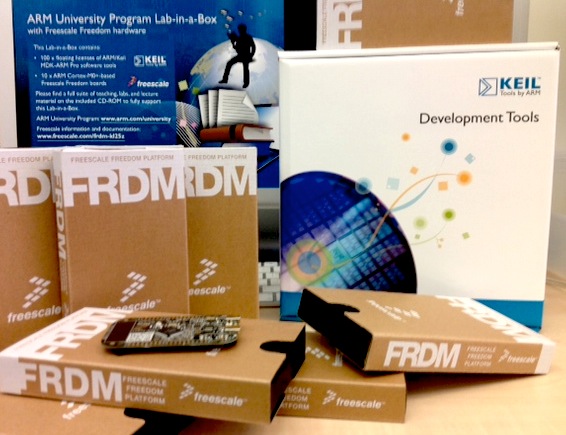Donation from ARM

Being a geek but also a teacher, a few months ago I attended a Train-the-trainer workshop in mbed programming at the ARM headquarters here in Cambridge. I learned about the mbed platform, which, in lay terms, is a little bit like Arduino for industrial purposes: With more horsepower and to be programmed in C or C++. ARM want to enter the educational market and for these purposes designed the Lab-in-a-Box (LiB), a pack of 10 Freescale Freedom FRDM-KL25Z microcontroller boards, the Keil development tool chain, as well as access to state-of-the-art lecturing and course material covering basic embedded electronics and more hardware-specific content. What caught my attention was “If you think this might be useful for your teaching, but you can’t quite afford it, please speak to use…”. Which I did.
Fast-forward a few months, and here I’m sitting in my office holding in hands what probably is the first LiB package in the UK. What for does a molecular biology lab need those, you may ask? The answer is simple: Microcontrollers can replace very complex electric circuits, and with programming skills the development of even complex sensor > processing > output projects becomes possible. The computational and systems biologists of the future are in a prime position to be users of such hardware!
Currently I’m developing a set of about a dozen lectures and practicals for biologists to learn embedded electronics and programming, and I’m hoping to run this as a voluntary course very soon.